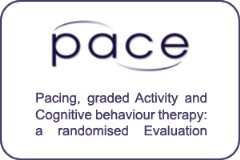http://www.centreforwelfarereform.org/news/misleading-mability-cuts/00270.html
Release: 14.04.2016
Misleading medical research underpins disability cuts
A new report from the Centre for Welfare Reform explains how a current scientific controversy relates to the debate surrounding welfare reform and cuts to disability benefits.
The 'biopsychosocial' model of disability has played an important role in shaping recent reforms to disability benefits, yet important claims about the value of biopsychosocial approaches have been founded upon evidence which was always potentially misleading, and can be shown to have been exaggerated and distorted in ways that further misrepresent the reality of living with ill health and disability.
The biopsychosocial model has been used to create new obligations for those suffering from common health problems, such as the responsibility to "recognize that the sick role is temporary, in the expectation of recovery." However it is not clear that these new obligations are reasonable. There is a danger that the belief that it is acceptable to encourage 'positive' views of ill health, disability and the efficacy of treatments have affected the design and reporting of medical research, encouraging unreasonable expectations of recovery.
A large and expensive assessment of biopsychosocial interventions, PACE, the only such trial to have received funding from the Department of Work and Pensions (DWP), provides a clear example of the problems which can affect academic research and distort our understanding of important issues. This report explains how problems with the design of this trial, and the presentation of its results, led to seriously misleading claims about patients' recovery rates.
In a Lancet commentary, reviewed and approved by the trial's researchers, patients were classed as having fulfilled a "strict criterion for recovery" even though the criterion used was in fact so loose that patients could have reported a worsening of all their symptoms and yet still have been classed as recovered.
Despite the problems identified with the presentation of results the trial's team continue to fight against releasing important data from this publicly funded research, with pre-specified primary outcomes remaining unreported. There have even been attempts to portray Freedom of Information requests about this trial as a form of harassment and stigmatise patients' concerns about the way in which the efficacy of potential treatments are being misrepresented to them.
With growing numbers of the international scientific community speaking out about the problems surrounding this trial, the Information Commissioner ruled that data which could correct many of the misleading claims made about the trial's results should be released. The trial's researchers and their institutions are appealing against this ruling, and an information tribunal is now due to take place on 20-22 April.
Dubious claims of biopsychosocial expertise have been used to serve the interests of influential institutions and individuals in government, medical research and the insurance industry, where concerns about money and reputation will inevitably compete with concerns about public health and patients' rights.
While there is a growing popular awareness of the problems with nonblinded or poorly controlled trials being used to make unjustified claims about the value of alternative medicine, there is also a widespread failure to acknowledge that more mainstream rehabilitative approaches can be built upon a similarly poor evidence base. Greater honesty about this is needed, especially as attempts to cut welfare spending lead politicians to turn to rehabilitation as a key part of their policies on disability, and as something which may become compulsory for those claiming disability benefits.
This report, written by George Faulkner, shows the need for more critical engagement with biopsychosocial medical research. There is a danger that the lives of millions of people have been damaged by judgments based upon inaccurate and misleading claims, shifting power away from those suffering with ill health and disability by presenting policies which reduce their options and income as benevolent and empowering interventions.
Further reading
There are several published articles already which draw attention to the serious flaws in this research. In particular:
PACE: The research that sparked a patient rebellion and challenged medicine http://www.stats.org/pace-research-sparked-patient-rebellion-challenged-medicine/
Results of the PACE follow-up study are uninterpretable http://www.thelancet.com/journals/lanpsy/article/PIIS2215-0366(15)00551-9/fulltext
An open letter to The Lancet, again http://www.virology.ws/2016/02/10/open-letter-lancet-again/
Comments
Dr Simon Duffy, Director of the Centre for Welfare Reform said:
Misleading medical research is particularly dangerous when politicians are looking to blame social problems on minority groups, as they have with disabled people. While it is encouraging that some of the academic community is beginning to challenge this problem, it is sad that so many continue to fight to protect their own interests, and we are particularly grateful to George Faulkner for carrying out this important research.
The report is available to read online and download as a pdf here:
http://bit.ly/expect-recovery http://bit.ly/expect-recovery

